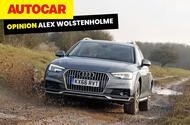Why Have Lifted Estate Cars Disappeared from UK Roads?
If you’ve ever found yourself stuck behind a towering SUV and thought, “There’s got to be a better way,” you’re not alone. For years, lifted estate cars—those clever blends of practical wagons and rugged off-roaders—offered a compelling alternative. Yet, as of this year, you won’t find a single new lifted estate car for sale in the UK. So, what happened to these versatile vehicles, and why did they fade from the market?
Which Models Used to Dominate the Segment?
Let’s take a quick stroll down memory lane. Not so long ago, the UK market was spoiled for choice. The Subaru Outback, Audi Allroad, Volvo Cross Country, Skoda Scout, and Volkswagen Alltrack were all vying for attention. Even Mercedes and Vauxhall joined the fray with their own lifted estates. These cars promised the comfort and handling of a traditional estate, paired with extra ground clearance and, often, all-wheel drive.
But now? With Subaru confirming the new Outback won’t make it to British shores, the last of the breed has vanished. The Ford Focus Active Estate and Porsche Taycan Cross Turismo are still hanging on, but only just—and they’re outliers rather than mainstream options.
What Made Lifted Estates So Appealing?
Here’s the thing: lifted estates weren’t just a quirky niche. They were genuinely practical. Imagine a car that could handle a muddy country lane, swallow a family’s luggage, and still feel nimble on a twisty B-road. That’s the magic these cars offered.
Take the AMC Eagle Wagon, for example. Launched in 1979, it was a pioneer—an American family car with raised suspension and full-time four-wheel drive. It struck a chord with rural buyers and snow-bound commuters alike. Fast-forward to the 1990s, and the Subaru Legacy Outback and Audi A6 Allroad picked up the baton, proving that rugged estates could be both stylish and capable.
Why Did Buyers Turn Away from Lifted Estates?
If these cars were so good, why did they never become mainstream hits? The answer lies in shifting consumer tastes. Over the past decade, SUVs have exploded in popularity. According to the Society of Motor Manufacturers and Traders (SMMT), SUVs accounted for over 40% of new car sales in the UK by 2023—a figure that’s doubled since 2015.
Why the switch? Many buyers are drawn to the commanding driving position and perceived safety of an SUV. There’s also a certain status attached to owning a big, bold 4×4, even if it rarely leaves the tarmac. Meanwhile, estate car buyers tend to be more pragmatic—less interested in off-road ability, more focused on boot space and fuel economy.
Are SUVs Really Better Than Lifted Estates?
Here’s where things get interesting. On paper, SUVs offer more ground clearance and a higher seating position. But when it comes to handling, efficiency, and day-to-day usability, lifted estates often have the edge.
For instance, a typical estate with raised suspension will corner more confidently and use less fuel than a similarly sized SUV. Plus, the lower roofline makes loading bikes, dogs, or roof boxes a breeze. And let’s not forget: many lifted estates come with advanced all-wheel-drive systems that put some crossovers to shame off-road.
So, why did buyers overlook these advantages? Partly, it’s down to image. SUVs have become the default choice for families and commuters alike. The result? Even the best lifted estates struggled to stand out in a crowded market.
What’s Next for Fans of Rugged Wagons?
If you’re mourning the loss of lifted estates, you’re not alone. There’s still a dedicated fanbase out there—drivers who appreciate the understated versatility these cars offer. On the used market, models like the Audi A4 Allroad and Volvo V60 Cross Country are holding their value well, a testament to their enduring appeal.
Looking ahead, there’s a glimmer of hope. Mercedes and Audi continue to offer rugged estate variants in Europe, and there’s always a chance that changing tastes or new regulations could bring them back to the UK. In the meantime, if you want the best of both worlds, a well-maintained used Allroad or Outback might just be your perfect companion for Britain’s unpredictable roads.
Why the Loss of Lifted Estates Still Matters
At the end of the day, the disappearance of lifted estates isn’t just about losing another car segment. It’s a sign of how quickly our preferences can change—and how the car industry adapts in response. For those who value a blend of practicality, comfort, and genuine all-terrain ability, these cars will always hold a special place.
So, next time you find yourself wishing for a bit more suspension travel or a chunkier tyre wall as you navigate a pothole-strewn country lane, remember: there was a time when the perfect all-rounder was parked right on the dealer forecourt. And who knows? With the right mix of nostalgia and innovation, maybe we haven’t seen the last of the lifted estate just yet.

